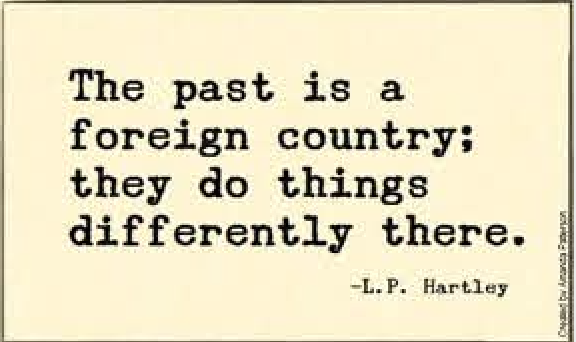When most people talk about history needing to be relevant for students, I fear what they mean is that it needs to be familiar. These voices argue that if a historical subject is too different from the students that learn it, they’ll just tune out. Or that students need to see themselves in the past in order for it to be meaningful in the present. While there are some truths to this, I fear that if we cling too tightly to this false equivalency, that familiarity = relevance, our students will miss out on just how great history is.
To be fair, the motives behind this false equivalency are good. Unfortunately, so many students are taught a specific narrative about the past that neglects the beautiful diversity of past characters. History is often taught from a purely political lens, leaving out the rich social, cultural, economic, and religious aspects. Or, even worse, history becomes a hagiography, where it is just a series of biographies of the past’s “great men.” These approaches to history miss so much richness, and it is true, can be very hard for students to be attracted to, especially if they can’t see themselves in those stories. We need a history curriculum that highlights diverse voices and perspectives and avoids simply conveying some grand narrative whose only grandeur is that it has been repeated over generations. Mere repetition does not make something more true.
Still, if we try to right this wrong by only focusing on whatever history is clearly connected to our present moment, we make history something that it never was supposed to be.
History is not meant to serve the agenda of the modern mind.* Just as historians rightly point out when politicians quote historical anecdotes just to show that they are “on the right side,” we must also challenge history curriculums that are all too directly tied to our current cultural moment. When we only focus on this history that is familiar or supports our current trends, we enable our own narcissism, believing that the past is just meant to serve our needs. It wasn’t.

As novelist L. P. Hartley opened one of his novels, “The past is a foreign country, they do things differently there.”
It is ok for the past to feel very foreign, or unfamiliar, when we study it. This lack of familiarity has the ability to humble us. It forces us to have empathy for those we study. It forces us to get out of our modern bubbles and seek to understand those not like us. It gives us the dispositions to navigate a world where people grew up differently from us, worship differently than us, adhere to political parties opposite of us, or uphold different customs from us. When we study an unfamiliar past, we better fit in with the human family. We see humanity in others before anything else. We have better ears for listening and better hearts for understanding. This has a much deeper relevance than simply making sure our students can see themselves in the past. It helps us become better people, ready to learn from those we’ve been told are so different from us.
At Thinking Nation, our goal is for students to engage with both the familiar and the foreign in the past. They can learn from stories they feel strong connections to, while at the same time seek to understand stories where the connection isn’t clear. Through this, they can be better citizens in both the U.S. and the world.
*Here, it is important to acknowledge that there is nothing wrong with our modern mind influencing our focus for our own study of history. Often, our own political, social, or cultural goals influence what parts of the past we want to uncover. Still, we must avoid trying to make the past fit into our present conceptions. There often will not be any subject that is a perfect fit for what we are looking for and we need to be able to wrestle with that complexity without simplifying past stories to fit our own outlooks.